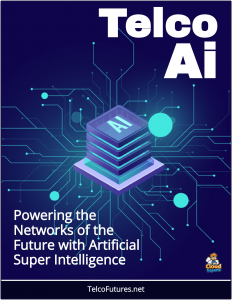 As Phil Kippen from Snowflake reports the number one buzzing topic at MWC 25 has been ‘Agentic Ai’, as indeed it is around the world across all other industries too.
As Phil Kippen from Snowflake reports the number one buzzing topic at MWC 25 has been ‘Agentic Ai’, as indeed it is around the world across all other industries too.
Telecoms.com writes that Agentic Ai is the ‘Future of Telecoms‘, sharing insights from Jitin Bhandari, Nokia’s Chief Technology Officer on how the trend is shaping the sector.
Writing on Linkedin Sagar Nangare sets the scene, asking ‘Will AI Agents Reshape Platform-Driven Telecom Networks?‘, exploring how the trend to adopt Cloud Native architecture in telecomms has put in place the building blocks of modularity, that Ai Agents will now build upon.
Autonomous Networks
The telecommunications industry stands at the cusp of a transformative revolution. At the heart of this change lies agentic AI—a paradigm shift in artificial intelligence that moves beyond passive automation to proactive, autonomous decision-making.
Unlike traditional AI, which reacts to predefined rules or human prompts, agentic AI systems possess the ability to act independently, adapt to dynamic environments, and pursue goals with minimal oversight. For telecoms, an industry that thrives on connectivity, efficiency, and innovation, the implications of agentic AI are nothing short of revolutionary.
Imagine an AI agent that doesn’t just flag a network outage but proactively reroutes traffic, deploys repair drones, and notifies affected users—all before a human operator even picks up the phone. With the ability to process vast streams of data from network nodes, user devices, and external factors like weather or traffic patterns, agentic AI can anticipate disruptions and take preemptive action.
This shift from reactive maintenance to predictive resilience promises not only to reduce downtime but also to elevate the user experience to unprecedented levels. The future of telecoms isn’t just about faster networks—it’s about smarter, more tailored services. Agentic AI has the potential to redefine how telecom providers interact with their customers.
Transforming Telecomms, Transforming Society
Beyond operational efficiency, agentic AI could spearhead the development of “green” telecom solutions. McKinsey writes that Telecomms AI infrastructure could power a surge in economic growth.
For instance, an AI agent might coordinate with renewable energy grids to prioritize solar or wind power for network operations, or even orchestrate the deployment of low-emission infrastructure in underserved regions. By aligning technological progress with ecological responsibility, telecoms can lead the charge toward a more sustainable digital future.
Agentic AI could democratize telecom innovation, enabling smaller players to compete with industry giants by leveraging intelligent automation. It could also accelerate the rollout of next-generation technologies like 6G, where ultra-low latency and hyper-connectivity will demand the kind of real-time adaptability that only agentic systems can deliver.
The future of telecoms is not a distant dream—it’s a vision taking shape today. Agentic AI promises to transform networks into living, breathing ecosystems that think, act, and evolve alongside us. For providers, it’s an opportunity to redefine their role in society, not just as infrastructure builders but as architects of a smarter, more connected planet.



